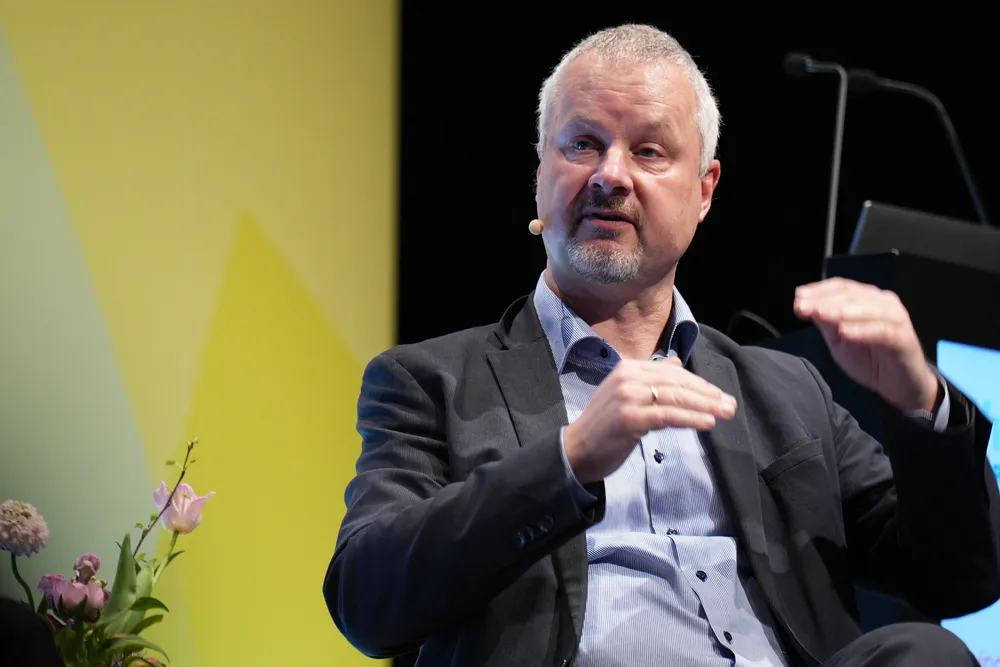We need 'double the energy at half the price' chemicals chief tells wind industry
Only lower energy costs will keep chemicals in Europe, Cefic director general says while steel giant Salzgitter's Groebler talks about massive investments

Only lower energy costs will keep the chemical industry in Europe, as it faces intense pressure from Asian competitors while clients demand cheaper products, the director general of the European Chemical Industry Council (Cefic) told wind industry executives.
“The problem we face today is that our customers are not paying for green” in 99% of the cases, Cefic’s Marco Mensink said at a panel on wind and European competitiveness on day two of the WindEurope 2025 conference in Copenhagen.
“When we invest in the bio-based resin or fully climate-neutral [products], we double our Capex, we have a higher Opex”, while customers would then go on to buy Chinese or Indian products.
That is the case even for public procurement. While the EU in Brussels for 20 years has been discussing how green procurement would change the world, local and regional governments still “buy cheap, they don’t buy green”, Mensink said.
“Lower energy prices is [what] will keep us in Europe. Everything else is circumstantial around it,” he added.
Just to make the chemicals and steel industry green – which Mensink called the “two elephants” – electricity production in Europe needs to double, he said.
“When you double the production at half the price, the good news is you make the same amount of money, and we actually stay alive,” the Cefic boss said.
To push down power prices, the link between gas and electricity prices needs to be removed as the former include carbon costs “we shouldn’t be paying”, he added.
“It actually means thinking in this chicken and egg situation where we're shutting down faster than you can build wind farms. Actually, the demand for renewables is going down in our sector and not up.”
A way to contribute to bring power prices down would be to lower VAT to 6% for certifiable circular and low carbon products, Mensink suggested.
Steel decarbonisation
“We have put electrification of the centre of [our decarbonisation] strategy, and we have put circularity at the centre of that strategy as well,” Groebler said.
Groebler said Salzgitter will need even more green electricity going forward to decarbonise its production, meaning its current consumption of 2.3TWh per year will jump to 4-5TWh by 2030.
“I need green electricity. You on the others side need green steel in order to reduce the Scope 3 emissions of wind turbines.”
(Copyright)